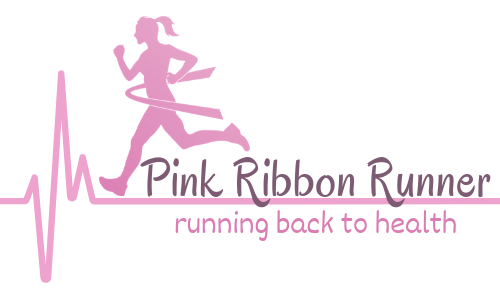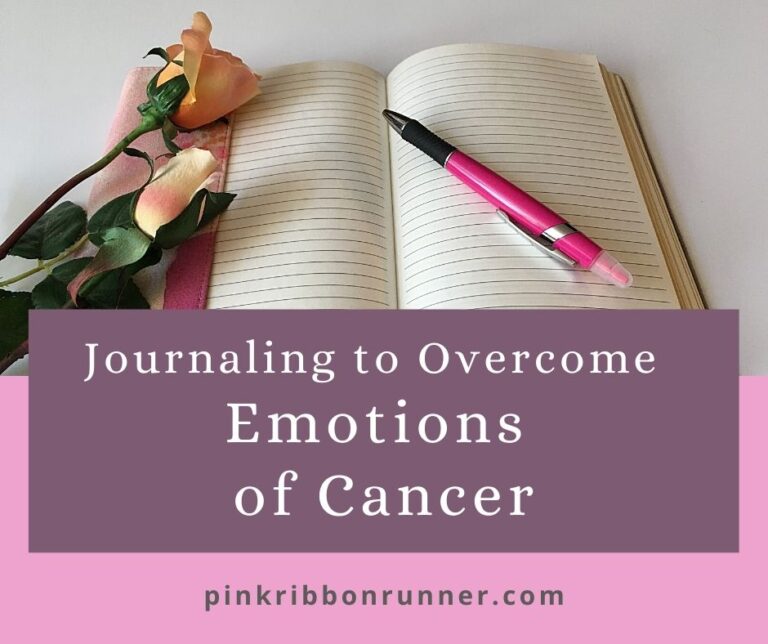Prebiotics, Probiotics, Postbiotics, A Healthy Gut, and Cancer
Most of us know that eating good food is important to stay healthy and prevent disease. But do you know why wholesome food is so important? Scientific researchers have recently uncovered some fascinating connections between digestion and our health. And now that connection may extend to preventing and treating cancers with prebiotics, probiotics and postbiotics.
This post contains affiliate links. As an Amazon Associate, I earn from qualifying purchases.
Digestion Explained
In order to understand the importance of gut health, you should have a basic understanding of the digestion process.
Let me briefly summarize the basics of digestion, from when food leaves your plate to when it comes out the other end.
Mouth:
When you chew your food, it mixes with saliva and breaks down into smaller pieces that are easily swallowed. Saliva contains enzymes that start digesting larger starch molecules. The better you chew, the more easily the rest of your body can process your food.
Esophagus:
All your throat does is move the food from your mouth to your stomach. The esophagus does this through a series of coordinated muscle movements called peristalsis, much the same way that the intestines move stuff along.
Stomach:
Most people think that the stomach is responsible for digestion. The stomach does some of the digestion, yes, but it doesn’t do the majority of the work.
The stomach is mainly a muscular sac that holds, grinds and mixes the food. More mechanical breakdown of the food happens here.
The stomach does break down the food chemically too. Hydrochloric acid is secreted by cells in the stomach lining. This strong acid mixes in with the food to liquify it and kill some potentially harmful bacteria.
Small Intestine:
When the liquid sludge from your stomach, called chyme, is ready, it moves into the first segment of your small intestine, the duodenum. Here the acid is neutralized with the alkaline bile stored in your gall bladder. Your bile also contains digestive enzymes that break down protein, carbohydrates and fats.
The majority of digestion occurs in your small intestine.
Proteins are broken down into amino acids. Larger carbohydrates are broken down into smaller glucose and fructose molecules. And fats are broken down into smaller fatty acids. Vitamins and minerals are also released.
All these smaller nutrients are absorbed across your small intestinal wall to enter your blood and lymph fluids. The nutrients are distributed to the rest of your body to supply energy, growth and repair cells.
A healthy small intestine is very important for your overall health. It is no wonder that, at more than 20 feet long, it is the longest organ in your body.
Large Intestine:
Your large intestine is only about 5 or 6 feet long. It finishes digestion, absorbing more of the nutrients that snuck past the jejunum and ileum segments of the small intestine.
Your large intestine resorbs water to help keep you hydrated. This concentrates waste products to form stool for elimination.
The fecal matter is passed to your rectum where it is stored until there is enough. When it is full enough, your rectum tells your brain to tell you to find a restroom to have a bowel movement.
And that completes the meal that you ate about 36 hours ago.
But wait… that isn’t all there is to digestion. There is more…
What is a Microbiome?
Did you know that you have millions upon millions of tiny living organisms inside you? And no, this isn’t something out of a sci-fi horror movie. It is actually a good thing.
This is your microbiome. ‘Micro’ means tiny and ‘bio’ means life. These tiny organisms are bacteria, some of which are vital to your digestion and your health.
A balanced microbiome is essential. An unhealthy microbiome means that you will struggle to be healthy and may develop certain diseases, such as diabetes, heart disease and cancer.
Let’s look at how your microbiome keeps you healthy.
The ‘Good’, The ‘Bad’ and the … ‘Ugly’?
Well…maybe not ‘ugly’, but neutral (not good or bad).
There are well over 500 different kinds of bacteria living in your digestive system. Yes, it is quite the party going on inside there.
But, let’s simplify this by saying that there are three basic types of bacteria that live in your gut.
- Good bacteria, such as Lactobacillus and Bifidobacterium, that can keep you healthy if you have enough of these happy little critters.
- Bad bacteria, such as Clostridium and Campylobacter, that can cause illness if given the opportunity.
- Neutral bacteria aren’t good or bad. They just like to hang out and party with everyone else.
What is Dysbiosis?
It is impossible to get rid of all the bad bacteria, nor is that even necessary for good health. A lot of times what is thought of as bad, is only bad due to its circumstances.
Think about that party analogy. You have a bunch of bacteria hanging out in your small intestine. Everyone is happy, eating and enjoying each others company. Then suddenly someone brings in an unhealthy or new food item.
Some of the good bacteria shy away from this food. Some other bacteria gobble it up with excitement and then they start to act funny. They become bolder and more aggressive. Now suddenly the party is out of control and those ‘bad actors’ are taking over, causing havoc.
They would have continued to happily live in harmony with the other bacteria until the balance was upset.
This is dysbiosis.
“Dysbiosis: An imbalance between the types of organism present in a person’s natural microflora, especially that of the gut, thought to contribute to a range of conditions of ill health.” – Oxford Dictionaries –
If dysbiosis occurs, your own digestive process can be disrupted.
Dysbiosis can lead to irritable bowel syndrome, leaky gut syndrome and other intestinal diseases. And it is now thought to cause other diseases too, even cancer.
A Healthy Gut Biome
You want to have a variety of different types of bacteria in your gut.
What you want is a balance of these three types of bacteria that lean more towards good
And your gut bacteria is about as unique as you are. In fact, identical twins can have completely different microflora in their digestive systems. It is not genetic. It is influenced by diets and external factors.
Why is it Important to have a Healthy Gut Microbiome?
- Helps control body weight
- Minimizes digestive issues, cramps and bloating
- Prevents and helps treat diarrhea, irritable bowel syndrome and other gastrointestinal diseases
- Reduces inflammation
- Reduces cholesterol and blood pressure
- Helps control blood sugar and lowers risk for diabetes
- Lowers risk for depression and other mental illnesses
- Decreases risk for stroke
- Supports the immune system
- Lowers risk for some cancers
How to Nourish a Healthy Gut Microbiome
Maintaining a healthy gut ecosystem and preventing dysbiosis is more than just eating yogurt or taking bacteria supplements. Simply supplying these bacteria isn’t enough.
You need to also provide an environment for your gut bacteria to grow, replicate and flourish. Otherwise any probiotic bacteria you eat will just die out and not give you the benefits we just talked about.
So, how do you do this? How do you make your gut a place that these bacteria want to hang out?
This is where we need to talk about prebiotics, probiotics and postbiotics.
These three things are key to maintaining a healthy gut and a healthy body.
What are Probiotics?
Most of us have heard the term probiotics, so let’s start here.
You can buy probiotic supplements in a store. Some foods contain natural probiotics. But what are they?
These are the bacteria themselves. These are those tiny, microscopic critters that are so important to your health.
You can find probiotic bacteria in foods like yogurt, kefir, kombucha, kimchi, sauerkraut, some cheeses and tempeh.

What are Prebiotics?
A lot of people confuse prebiotics with probiotics. But they are completely different things.
Prebiotics are food for probiotics. These are the things that feed your gut bacteria and keep them healthy.
Think of your microbiome like a pet. You need to give it food and water. And you should even be taking it for a walk (more on how exercise influences your gut microbiome in a future article).
You can influence your microbiome, and which bacteria flourish and which do not, by the foods you eat.
To support your good bacteria, you need to eat vegetables, fruits and whole grains. The good bacteria love to feed on the fiber in these foods.

What are Postbiotics?
Most people have never heard about postbiotics. Interest in these nutrients, enzymes and chemicals is gaining momentum.
Postbiotics are what the bacteria make after feeding on prebiotics. Essentially, these are bacterial waste products. While not all gut bacterial waste is beneficial, postbiotics are defined as the beneficial bacterial digestive by-products.
“Postbiotics include any substance released by or produced through the metabolic activity of the microorganism, which exerts a beneficial effect on the host, directly or indirectly” – Nutrients 2020, 12, 2189
So, these are the compounds that are good for you. Some of these include chemicals such as acetic acid, butyrate, muramyl dipeptide and teichoic acid. But you don’t need to remember any of that… unless you want to impress your friends.
All you need to remember is…
Probiotics feed on Prebiotics to make Postbiotics.

It is the postbiotics, these waste metabolites produced from your gut bacteria, that give you the health benefits we talked about earlier.
These are the compounds that your body absorbs to help control your blood sugar.
They help reduce your cholesterol.
Postbiotics are the building materials for neurotransmitters, such as serotonin, that help reduce depression.
And they are the nutrients, including vitamins, that your immune system needs to stay healthy and prevent cancer.

The types of prebiotics that you eat and the probiotics in your gut dictate the types of postbiotics produced.
You can influence your gut microbiome by what you eat.
So, eat high fiber foods, such as vegetables, to feed good gut bacteria to produce healthy postbiotics.
Digestion Has Two Parts
You need all three “biotics” working along side your own digestive system to stay healthy. Thus, digestion has two players:
- Your gastrointestinal system and enzymes acting on the protein, fat and carbohydrates you just ate to make basic and essential nutrients.
- Your gut microbiome acting on the foods and fiber you just ate to produce beneficial postbiotics.
Isn’t this a miraculous wonder of nature? Our health is so intertwined and fascinating.
Postbiotics and Cancer
And this is why it is so very important to eat a healthy diet when you are battling or trying to prevent cancer.
You need essential nutrients to support your immune system and provide the building blocks for your cells to repair themselves. And you need the postbiotic anti-inflammatory and anti-cancer benefits too.
Research has shown that some postbiotic metabolites can kill metastatic cancer cells.
And other studies have shown that colon cancer patients respond better to treatments and have less side effects if certain postbiotics are present.
Researchers have hypothesized that dysbiosis can lead to cancer, as well. And there are some studies to back this up.
This certainly is promising research and demonstrates how important it is to eat a diet of a variety of healthy foods to keep not only you, but also your gut bacteria healthy and prevent dysbiosis.
IMPORTANT UPDATE: If you are undergoing immune therapy for your cancer, do not take a probiotic supplement without the advice of your cancer care team. There is some new research that suggests that concentrated probiotic supplements may interfere with some treatments.
It is always a good idea to tell your oncology team about ANY supplements you are taking.
Related Articles:
10 Nutrients Essential For A Healthy Immune System
Do’s & Don’ts of Eating While Taking Tamoxifen
Do’s & Don’ts of Eating During Cancer Radiation Therapy
10 Dietary Tips for a Healthy Gut Microbiome
So, how do you support a healthy microbiome in practical terms? Here are some tips to keep your gut biota healthy
- Eat to encourage growth of the bacteria you want; the good ones.
- Include a variety of vegetables and fruits to support a variety of different types of bacteria.
- Eat whole grains that contain fiber and beta-glucan, such as oats.
- Limit foods that encourage dysbiosis, such as processed foods, refined sugars, unfermented dairy and starchy vegetables.
- Legumes and beans also encourage development of good bacteria (e.g. Bifidobacteria). But introduce them slowly as they can cause gas and bloating.
- Include green tea, dark chocolate, and olive oil in your diet too. These foods are rich in polyphenols that support good bacteria growth.
- Avoid artificial sweeteners that encourage the wrong type of bacteria (e.g. Enterobacteriaceae) to grow.
- Eat some fermented and probiotic foods, such as yogurt or kombucha, to supply good bacteria.
- Take prebiotic or probiotic supplements on the advice of your health professional team. You want to make sure you are taking the right supplements and keeping everything in balance. If you are currently undergoing cancer treatments, do not take supplements unless your oncology team tells you it is okay. Some supplements can interfere with treatments.
- If you are on antibiotics or other medications, talk to your doctor or pharmacists about taking a probiotic supplement. Antibiotics and some medications kill bacteria and can lead to dysbiosis.
If you suspect that you are already suffering from dysbiosis, consider consulting with a dietician to develop a diet that is right for you. You may need to follow a restrictive diet temporarily to get things back under control.









I just had my left breast removed. And it has been one and half month. Next week i will be starting my tamoxifen pills. I chance to come to this web site. I notice many useful tips. I need your advise. Can i drink celery juice or carrots juice while i am on tamoxifen. I have this bloating problem. I was recommended to take digestive enzymes. It helps my bloating and blurbing. Can i also consume probiotics during my tamoxifen pills. Your feedback will help me tremendously and give an assurance. Looking forward to your site and advice. Thank you.
We don’t know the full scope of interactions with fruits/vegetables and drugs that are metabolized by the CYP enzyme system. Grapefruit is the one we know the most about and is now mentioned by most pharmacists when you pick up your medications. Carrot does inhibit the CPY2E1 enzyme. The significance of this is not likely to affect tamoxifen, specifically. Celery may decrease CYP enzymes, but there aren’t many studies. One study in mice showed the effect of celery on liver enzymes did not interfere with some drugs. I think the benefit of carrots and celery far outweigh any risks, which seem to be very small, if any. These are packed full of nutrients and antioxidants. If you can eat them whole (cooked or raw), without juicing, that is better. Juicing takes out any beneficial fiber that can help balance out nutrient absorption and act as a prebiotic. Juicing will also concentrate other compounds that may interfere with the liver enzyme system. But, if you need or want to juice these veggies, drinking them in reasonable amounts is likely safe with tamoxifen.
I am not aware of any studies that suggest tamoxifen interacts or is affected by probiotics. One preliminary studied looked at over 10, 000 people taking tamoxifen and probiotics and found no issues. But they are doing more studies to confirm this. Natural probiotics are likely okay. But talk to your oncologist before you take any probiotic supplements.
All my best for successful treatments with minimal side effects. I am sorry you are having to deal with breast cancer.
This was a really informative and well-written post! I appreciate the time you put into sharing about gut help. Thank you!
Thank you for your praise. Most appreciated.
Very in-depth and informational post. Got to know many things. Thank you for sharing.
Your blog is informative and also inspirational. I’m sharing it with those around me, thank you. Blessings
Nikki
Yes, please share. Thank you.
Excellent post! I never heard of postbiotics but I can see how it makes sense to think of the flora’s waste as postbiotic. The metaphor that comes to mind is worm casting that I use in my garden: the veggie scraps and garden waste are the prebiotics, the worms are the probiotics, and the warm castings which are the black gold for my garden are the postbiotics. Makes perfect sense. Out bellies are a garden too!,
Perfect analogy!
Thanks for the details on how we can improve our overall health which we often take for granted.
Thanks for the tips, I didn’t know all the information.
Wow, such an informative post!! Our bodies are so amazing and so complex. I do take a probiotic and pair it with foods with prebiotics. I was not familiar with postbiotics!
Wow – what a superb well researched article on this important subject for overall health & wellness. We do try to eat a well balanced diet and have always taken probiotics before and during travel. We have also included intermittent fasting into our lifestyle which has helped tremendously. Great post & have Pinned for future reference. 🙂
Thanks for all the great information. I had not read about prebiotics before, and this helps me understand digestion and the importance of fruits and vegetables. Thanks!
This is such an informative post for maintaining gut health…Thank you for the in-depth info!